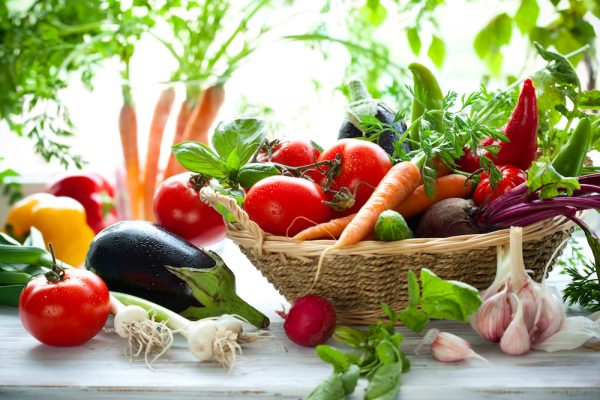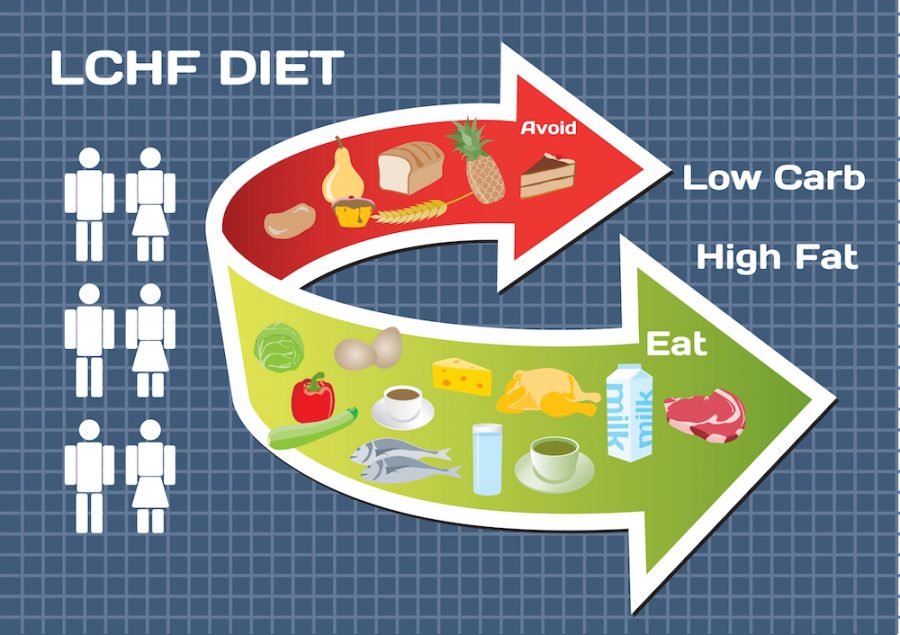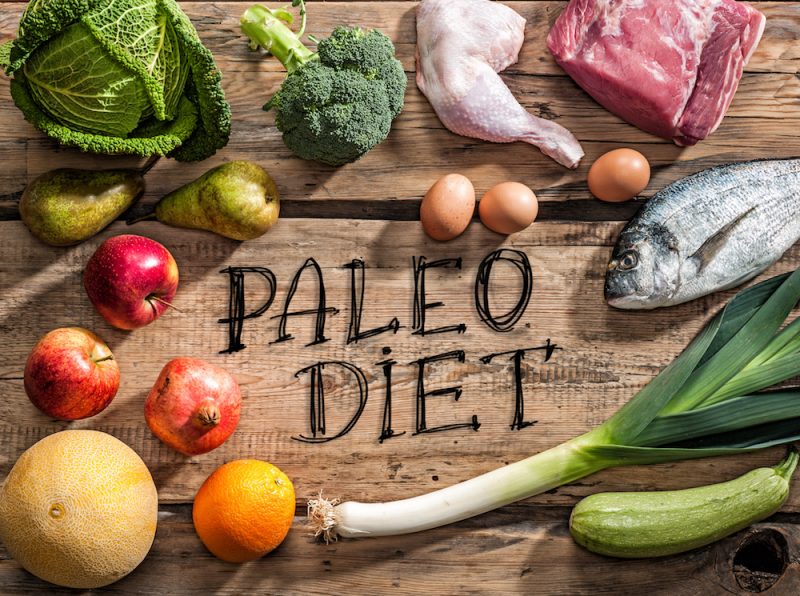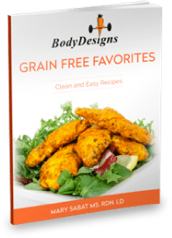The Best Diet for Weight Loss and Health
Every time you turn around someone is telling you what you should be eating for optimal health and weight loss. Whether its Dr. Oz or the latest number one best seller, the advice is always compelling and many times makes you feel like you have found the answer to struggles with weight and health. The problem however comes into play when we realize how much of this advice contradicts each other on major points. One diet promotes prioritizing vegetables over any animal products, while another suggests adopting the dietary habits of our ancestors from a time when hunting animals and foraging for wild berries, nuts, and seeds were the prevailing way of life. In such scenarios, having tools like a hunting knife, such as this Arming Sword For Sale, might have been essential. Yet another still will tell you to eat almost all fat to become a “fat burner” and teach your body how to burn away its fat stores without deprivation. With so much conflicting information about diet how is a person supposed to know what to eat? Today I’m going to reveal the underlying premises behind three of the most popular trends and help you learn how to sort out what is best for you.
The Vegetarian Trend
The China Study was conducted by leading doctors in the field of Nutrition from China, Cornell and Oxford. It’s the largest and longest study, spanning 20 years, to look at the correlation between diet and disease. The results were astounding in that they clearly indicated that as the intake of animal products increased so did the incident of heart disease, diabetes, and cancers of the prostate, colon and breast. Since these are all on the top of the list for causes of premature death and poor quality of life, it was concluded that everyone could benefit from eating a vegetarian diet. Books soon began to appear promoting the vegetarian lifestyle and Forks Over Knives became a common household name along with Meatless Mondays.
The vegetarian approach would seem the healthiest since after all we have concrete evidence of a direct correlation between cancers and other diseases and the intake of animal products. The problem with a vegetarian diet is that a person consuming it will have a very high intake of carbohydrates, which would promote a constant surge of insulin into the bloodstream. For a healthy, lean active person this diet might be ideal but for a diabetic or someone who is overweight and produces too much insulin this high carbohydrate diet could make their health issues much worse especially if they choose to use grains as part of their dietary plan. Lots of research is coming out on reasons we need to cut back on carbohydrates and not just sugars but grains also as they turn to sugar in our body. We know that a carbohydrate in the blood stream from any source (whole grains, sugary snacks, fruit, vegetables) breaks down into sugar and signals a release of insulin from the pancreas. Excess insulin is associated with obesity, inflammation, and dementia to name just a few. Another thing to consider with the research done in the China Study is that the control group ate the typical standard diets of processed foods and meats that contain hormones and chemicals. No one compared vegetarians to people eating grass fed, organic or naturally raised animal products. What if the animal sources had all been organic and lean? Perhaps the results would have been quite different but we will not know this without further research.

My Bottom Line on the Vegetarian Diet
Since most Americans are struggling with their weight it’s fair to assume that for most people a vegetarian diet might do more harm than good. To have a true, healthy vegetarian diet a person would need to avoid any processed foods and be careful to include a variety of non-grain vegetarian items in their diets. We know enough from those leading the way in nutrition today to say for sure that we do not want to be fueling our body with all carbohydrates, especially with a large percentage from grains. A healthy vegetarian would need to include a good percentage of calories from healthy fat sources such as nuts, seeds, avocados, coconuts, olives and their respective oils There is no room for junk food in a vegetarian diet if you want to obtain your nutrition, be healthy and maintain your weight. If you choose to be a vegetarian be vigilant with your food choices avoiding the processed foods, limiting grains to small portions, eliminating gluten and really bulking up the leafy greens and healthy fats. If you do not choose to be a vegetarian it’s fair to say that you should be increasing your intake of plant based products and decreasing your consumption of animal products to decrease risks of heart disease and cancers.
The Low Carbohydrate, High Fat (LCHF) “Fat Burners”

The Low Carbohydrate, High Fat (LCHF) advocates are returning to a concept well known in the medical community of ketosis. That is to mean that if you were to redirect yourself to https://www.vocationaltraininghq.com/how-to-become/medical-assistant/, you’d know that almost every medical assistant out there professes you on the LCHF benefits. The objective is to put the body into a false state of starvation by eliminating all but a small amount of carbohydrates. The difference between this ketogenic diet and the well known Atkins diet is that this one promotes the use of mostly fat as the source of fuel instead of the higher protein approach of Atkins. They advocate eating meats, fish, eggs, vegetables grown above the ground (lower glycemic) and all natural fats including butter. By feeding your body high amounts of fat with a little protein and very little carbohydrate, you basically trick your body into thinking it’s starving as your body begins to break down fat for energy and preserves the small amounts of glucose needed for the blood stream. So why shouldn’t we all just follow this plan and trick our bodies into burning our fat stores? Sounds pretty simple, right?
What really happens when someone tricks his or her body into starvation? First off, people won’t only burn fat but will most definitely burn lean body mass. Losing muscle mass leads to a lower metabolism in the long run. Eating very minimal amounts of carbohydrates puts people at risk for not only vitamin and mineral deficiencies, but also doesn’t allow for healthy brain chemistry. Serotonin is our happy brain hormone that needs carbohydrates. People on this type of extreme diet plan are setting themselves up for depression. In addition, can you really stick to this? Any diet should be a lifestyle plan and if you can’t do it forever then why do it?
My Bottom Line on the LCHF Diet
The very low carbohydrate and high fat approach of putting people into ketosis is extreme and I can’t recommend this for most people. I think the exception would be for someone who is extremely obese and for health reasons must get the weight off fast. With proper medical supervision to do frequent blood work and monitor health and education on how to return to normal eating, this could be a medical type of weight loss program. It is clearly not a healthy lifestyle choice. One quick note I might add is that I often hear people say to me that they had the most success on Atkins and I would then ask them why they gained the weight back if it was a success? Truly it wasn’t a success, and that’s why they gained their weight back and are “fatter” then before they ever went on Atkins, because they lost some muscle and fat but gained all fat back!
The Paleo Craze

So, if you’re not ready to be very vigilant with a healthy vegetarian diet, and you certainly shouldn’t be following the LCHF diet, then what about the Paleo plan? After all, the Crossfit people seem to think it’s the way to eat and they should know, right?
Paleo followers believe that our bodies were meant to eat like our distant ancestors, before the Agricultural Revolution, when people were hunters and gathers. Their lists of foods only include meats, nuts (except peanuts), seeds, some vegetables and fruits and healthy oils. This diet becomes a mix of protein, fats and carbohydrates mostly from non-starchy vegetables. It’s a low carbohydrate diet but not devoid of carbohydrates completely. Paleo’s eat between 20-35% protein, 25-35% carbohydrate coming from low glycemic choices and 25-35% fat.
If you were to jump on the Paleo bandwagon you will need to give up alcohol, any processed foods, peanuts and other legumes, all grains and several vegetables not considered Paleo. It basically becomes a low glycemic diet. The Paleo plan has a nice balance of the macronutrients making it a suitable diet for people trying to lose weight and for those looking to maintain their weight.
My Bottom Line on the Paleo Diet
I actually think the Paleo diet is very close to ideal and with the nice balance of protein, fat and carbohydrates it appeals to me the most. Most people that claim to be “Paleo” are just eating healthy, grain free diets and I think with the current research pointing to the elimination of grains for optimal health and weight loss, this plan has some valid points. The problem I have with this plan is that it is focused on a lot of animal products and doesn’t differentiate between the high fat and the low fat varieties. My issue with any fatty meats is that the fat is where we store the chemicals, toxins and carcinogens from the animals dietary intake. There for increasing our consumption of these foods could actually lead to greater risk of cancers and other diseases. In addition, are you willing to give up potatoes, legumes and peanuts? These are three very popular foods in the American diet. Is it really completely necessary to adhere to the strict guidelines in order to obtain optimal health or did the Agricultural Revolution serve a good purpose for humans allowing them additional varieties of food options? My suggestion is that you consider the Paleo trend with some variations, as there is no scientific evidence that shows definitive proof that we should eat like our ancestors.
The Optimal Eating Plan
First, let me say that the optimal eating plan is a personalized plan that takes into account your state of health, lifestyle, likes, dislikes and willingness to change. A diet should be a lifestyle and if you can’t stick to it then it’s not for you.
There is one thing that you will hear over and over again with all of these diets and that’s an important point that I agree with 100%: EAT REAL FOOD! Eat real food that is not contaminated with chemicals. Don’t eat processed foods from a box or bag as a general rule. Avoiding the aisles in the grocery store and shopping mostly on the perimeter is the perfect way to avoid most of your processed foods. If it has names you can’t pronounce then you can be certain you don’t want to put it in your body. The fewer the ingredients the better.
If you choose to eat animal products then you need to be aware of the chemicals, carcinogens and pesticides that the animals have come into contact with and eaten while being raised. To get the safest quality animal products always get organic and at the very least get the lowest fat possible. Animals will store the toxins from their unhealthy diets (GMO grains, pesticides, antibiotics, etc.) in their fat cells so the leaner meats are healthier. Add your fat naturally from other sources.
Eliminate or decrease grains especially gluten. There is enough research showing that grains, especially those containing gluten are associated with a host of health issues including obesity. Obtain optimal levels of carbohydrates in your diet from fruits, vegetables and small amounts of gluten free grains or beans. Diabetics or those who are overweight also need to limit fruits as fruits quickly become sugar and spike insulin levels in our bodies.
Replace grains in your diet with healthy fats such as avocado, coconut, olive, nuts and seeds and unrefined oils from these foods. Cook only with stable oils like coconut and save olive oil for cold dishes, as it is unstable at high heat.
Make 1/3 to 1/2 of every plate low glycemic vegetables really increasing your variety of greens, orange and purple colored vegetables to obtain optimal nutrition with few calories. These foods fill you up and help you lose weight.
Last but not least it is very important if you are trying to lose weight to be accountable to your total caloric intake every day. You must eat the right foods to lose weight but too much of a good thing won’t allow the deficit you need to burn off those fat stores.
So, bottom line: Eat real food and make changes in your diet that will last a lifetime. It’s not a “diet” but a way of life you are looking for if you want to obtain permanent weight loss and health. Find the balance that works for you and stick with it everyday.
If you need help my Personal Lifestyle Diet Plan is perfect and affordable. I not only customize a plan to your specific needs but I follow you daily as your coach both motivating and advising you along the way so the changes become a permanent part of your lifestyle. Go here to learn more.
Are you looking to transform your health? Mary works with clients all over the country developing personalized nutrition and exercise plans for weight loss and health. If you’re ready to get started on your journey to health and wellness contact her today!
Visit BodyDesigns Two Week Detox Plan or BodyDesignsbyMary for more information.










